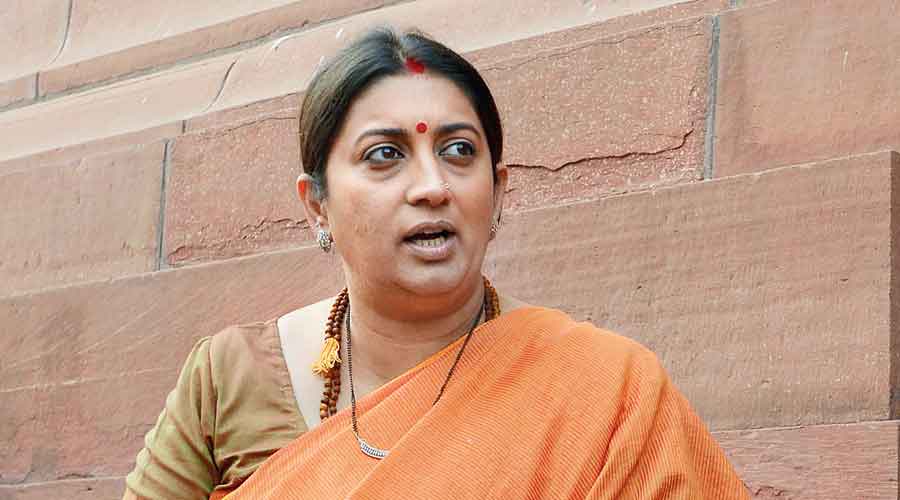The Centre has scrapped or narrowed the scope of several schemes meant to promote education among religious minorities, Dalits, tribal communities and Other Backward Classes, prompting academics and community leaders to question the logic behind these decisions.
The minority affairs ministry has discontinued from financial year 2022-23 schemes such as Padho Pardesh, Naya Savera, Nai Udaan, Maulana Azad National Fellowship and a sizeable component of the Pre-Matric Scholarship (PMS) for minority students.
The social justice and empowerment ministry has curtailed the scope of the PMS for Scheduled Castes and OBCs. The tribal affairs ministry did the same with the PMS for the Scheduled Tribes. Many of the schemes for minority students were implemented by the UPA government after the Sachar committee of 2006 found Muslims worse placed than Dalits in jobs and education.
Padho Pardesh subsidised the interest on educational loans taken by minority students for overseas study.
In a notice issued last December, the minority affairs ministry abolished Padho Pardesh saying it overlapped with other schemes, such as the education ministry’s Credit Guarantee Fund Scheme for Educational Loans (CGFSEL) that provides an interest subsidy on education loans up to Rs 7.5 lakh.
Jawed Alam Khan, a researcher on public policy issues, said Padho Pardesh had been a great help to minority students since it imposed no upper limit on the volume of the education loan. “The loan amount eligible for an interest subsidy under the CGFSEL is much lower than what a student needs to study abroad. The annual tuition fee is in the range of Rs 20 lakh to Rs 30 lakh abroad,” Alam said.
Naya Savera provided minority students with free coaching for entrance tests for professional courses and competitive exams for recruitment to Group A, B and C posts. It was implemented through the universities, colleges and coaching centres. More than 1.19 lakh students had benefited since the scheme’s introduction in 2007-08. A notice issued by the minority affairs ministry on February 20 said the scheme was being discontinued as the New Education Policy (NEP) did not support coaching programmes.
Alam highlighted that the central government’s Ambedkar Centres of Excellence continued to provide free coaching to Dalit and tribal students. Abha Dev Habib, a faculty member at Miranda House College under Delhi University, said centralised exams such as the Common University Entrance Tests for undergraduate and postgraduate courses had forced even students of the humanities to resort to coaching. “While the NEP talks of ending coaching, its focus on centralised pan-India exams has only expanded the market for coaching,” Habib said.
“Since last year, when the CUET was started and the government asked all central universities to admit undergraduate students only through the CUET, coaching proliferated. “Students dropped out of regular school and secured admission to dummy schools to attend coaching classes and prepare for the CUET. There is no rationale for discontinuing free coaching for minority students.” The Nai Udaan scheme provided a one-time lump sum to minority candidates who had cleared the preliminary exams conducted by the Union Public Service Commission, State Public Service Commission or Staff Selection Commission to help them prepare for the main exam and the interview.
As for the PMS, it now covers only students of Class IX and X. Earlier, it was available to students from Class I to X. In reply to a question in the Rajya Sabha on Wednesday, minority affairs minister Smriti Irani said the Right to Education Act already provided for free and compulsory elementary education (from Class I to VIII). Alam said the RTE Act had failed to improve the quality of education at government schools, and the scholarship was certainly an incentive not to drop out.
The Maulana Azad National Fellowship for research students has been discontinued on the ground that it overlaps with other fellowship schemes. However, specific fellowships for Dalit, tribal and OBC students continue. Zafarul Islam Khan, former chairperson of the Delhi Minorities Commission, said the scrapping of the schemes reflected the current government’s apathy towards the promotion of education among minorities. “The minorities, particularly Muslims, have certainly not made significant improvement in their education index during these past few years. But the present government seems indifferent towards their problems,” Khan said.
He said the general atmosphere of hate, lynching and propaganda using false issues such as “love jihad” had disturbed every Indian Muslim, and the “youth are the worst affected”. Responses are awaited to emails sent on Friday to minority affairs secretary Mukhmeet Bhatia and social justice secretary Anjali Bhawra seeking their reactions to the concerns expressed about the closure of the schemes.











